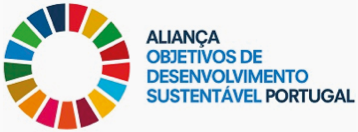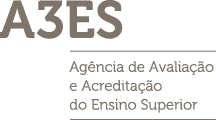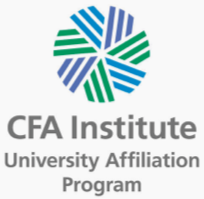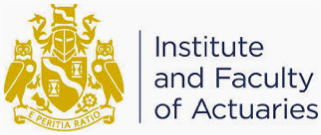The challenge is set.
Are you up for it?

ISEG is the place to go if you want to go places. We have a long tradition of Economics studies and an extensive experience in research development. Our Masters in Economics builds up the perfect pathway for your career to move forward. Who knows, maybe it could help you land your dream job.
At ISEG, you’ll get a two-year master’s programme that complements and builds on the knowledge acquired from a Bachelor’s degree in Economics. Its main objectives are to provide every student with an advanced background in economic theory along with the skills and empirical techniques they’ll need to thrive in the current economic reality.
You will gain advanced knowledge in economic theory and learn innovative empirical instructional methods.
Develop skills that will help you pursue a career as a professional economist in different areas, such as international institutions, government or industry, and build the foundations for research-based roles.
Get instructions and guidance from top-quality faculty members and excellent mentors.
Enrich yourself in a diverse learning and research environment, where you can collaborate with top students from around the world.
Take full advantage of our high-quality research centres and facilities, namely the recently launched XLAB – Behavioural Research Lab.

The challenge is set.
Are you up for it?



| Year 1 – Semester 1 | Credits |
|---|---|
| Econometrics | 6 |
| Mathematical Economics | 6 |
| History of Economic Thought | 6 |
| Macroeconomics | 6 |
| Microeconomics | 6 |
| Year 1 – Semester 2 | Credits |
|---|---|
| Growth Economics | 6 |
| Labour Economics | 6 |
| Elective I | 6 |
| Elective II | 6 |
| Elective III | 6 |
| Year 2 – Semester 1 | Credits |
|---|---|
| Elective IV | 6 |
| Elective V | 6 |
| Elective VI | 6 |
| Masters Final Work (Seminar) | 12 |
| Year 2 – Semester 2 | Credits |
|---|---|
| Masters Final Work – MFW • Dissertation | 30 |
Elective – Course unit chosen from a list of approved masters courses.
See the description of each Curricular Units here.
Applications for all masters at ISEG are online.
Candidates for the Master in Economics are:
1. THE FINAL APPLICATION MARK
The final application mark (f) is obtained as follows:

where t is the transformed final average mark (GPA) in the undergraduate course and c, 0 ≤ c ≤ 20, is the qualitative mark for the candidate’s CV.
Minimum absolute merit requires that f ≥ 9.5.
2. THE TRANSFORMED FINAL AVERAGE MARK
The transformed final average mark t is the one considered equivalent to a final average mark m in the undergraduate Economics course at ISEG. The transformation is a linear function for different course-school-GPA groups and it is given by:
t = ai + bim
where:
– m is the Portuguese-equivalent GPA;
– and parameters ai and bi are given by the following table for an applicant in group i;
| Group i | ai | bi |
| A | 0 | 1 |
| B | 227/30 | 19/60 |
| C | 217/30 | 7/30 |
| D | 39/5 | 1/5 |
| E | 7/2 | 1/2 |
| F | 19/5 | 2/5 |
| G | 3 | 2/5 |
| H | 3 | 2/5 |
| I | 11/5 | 2/5 |
The applicant-GPA groups are obtained as follows:
•Group A – m ≥ 14 in undergraduate degrees in Economics, Finance, and Applied Mathematics to Economics and Management in international-level schools.
•Group B – m ≥ 14 in undergraduate degrees in Economics, Finance, and Applied Mathematics to Economics and Management in national-level schools. Business and Management courses obtained in international-level schools. Other degrees, except Management, Arts, Social Sciences (except Psychology), and Humanities obtained in international- or national-level schools.
•Group C – m ≥ 14 in undergraduate in Economics, Finance, and Applied Mathematics to Economics and Management in regional-level schools. All the other degrees not included in A and B.
•Group D – the same as group A, but with m in {12, 13}.
•Group E – the same as group B, but with m in {12, 13}.
•Group F – the same as group C, but with m in {12, 13}.
•Group G – the same as groups A and D, but with m in {10, 11}.
•Group H – the same as groups B and E, but with m in {10, 11}.
•Group I – the same as groups C and F, but with m in {10, 11}.
Therefore, candidates in groups F, G, H, and I are not eligible for the M.Sc. in Economics, in general. Three exceptions:
i) When the applicant has already passed a significant number of credits in detached M.Sc. in Economics’ courses.
ii) A student in group F who completed a significant part of another M.Sc. course at ISEG can be classified in group E.
iii) Students who obtained his/her (last relevant) undergraduate degree more than 10 years ago, can be classified in the group below.
3.THE QUALITATIVE MARK FOR THE CANDIDATE’S CV
We take into account the following items:
a) Motivation and reference letters.
b) Marks obtained in compulsory undergraduate courses in Mathematics, Economic Theory (Macro and Micro), Statistics, and Econometrics.
c) Professional and personal experience, including its relevance for the M.Sc. in Economics.
All candidates should have an excellent command of the English language, written and spoken.
These are provisional tuition fees for 2024/25, subject to confirmation by the Universidade de Lisboa statutory bodies.
| Students from | First Year | Second Year | Total |
| Within the European Union | € 3,750 | € 2,000 | € 5,750 |
| Outside the European Union | € 4,500 | € 2,500 | € 7,000 |
Financial restrictions should never come in the way of your access to higher education, and that is why we believe in providing equal opportunities for everyone.
A specific tuition fee payment schedule may be agreed upon request by the student.
If you are not an EU, EEA, or Swiss citizen, you need a Student VISA.
Once you have decided to join the master’s programme and paid the 1st tuition fee to secure your place, you can issue the acceptance letter on the FENIX Portal. This document will be needed later to apply for a Student Visa. The student visa must be requested at the nearest Portuguese Embassy or Consular Office in the country of origin.













